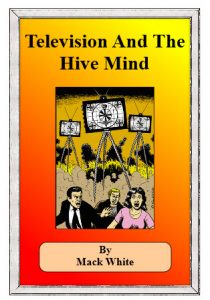SIXTY-FOUR years ago this month, six million Americans became unwitting subjects in an experiment in psychological warfare.
It was the night before Halloween, 1938. At 8 p.m. CST, the Mercury Radio on the Air began broadcasting Orson Welles’ radio adaptation of H. G. Wells’ War of the Worlds. As is now well known, the story was presented as if it were breaking news, with bulletins so realistic that an estimated one million people believed the world was actually under attack by Martians. Of that number, thousands succumbed to outright panic, not waiting to hear Welles’ explanation at the end of the program that it had all been a Halloween prank, but fleeing into the night to escape the alien invaders.
Later, psychologist Hadley Cantril conducted a study of the effects of the broadcast and published his findings in a book, The Invasion from Mars: A Study in the Psychology of Panic. This study explored the power of broadcast media, particularly as it relates to the suggestibility of human beings under the influence of fear. Cantril was affiliated with Princeton University’s Radio Research Project, which was funded in 1937 by the Rockefeller Foundation. Also affiliated with the Project was Council on Foreign Relations (CFR) member and Columbia Broadcasting System (CBS) executive Frank Stanton, whose network had broadcast the program. Stanton would later go on to head the news division of CBS, and in time would become president of the network, as well as chairman of the board of the RAND Corporation, the influential think tank which has done ground-breaking research on, among other things, mass brainwashing.
